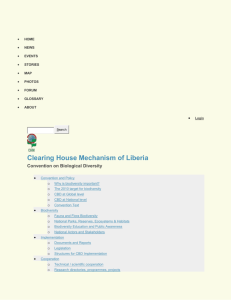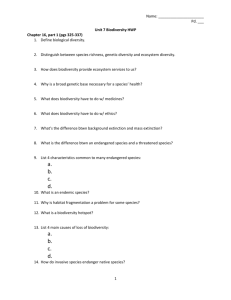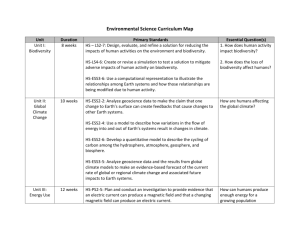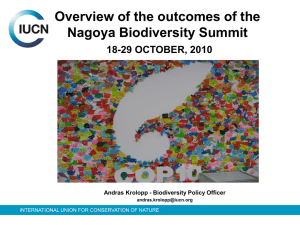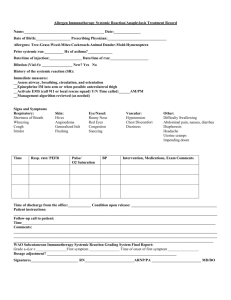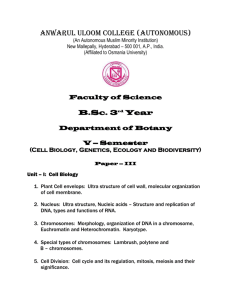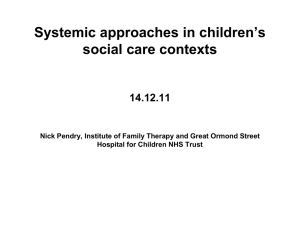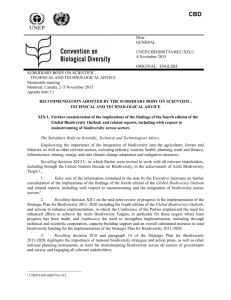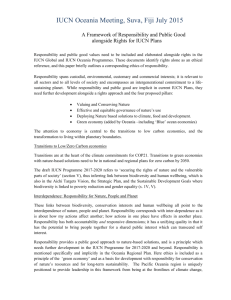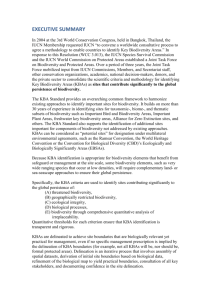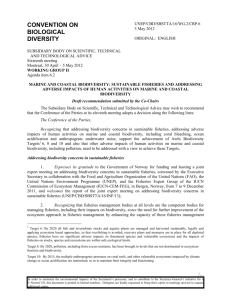Memo of TFSP to secretariat CBD - SBSTTA In reaction to: New and
advertisement
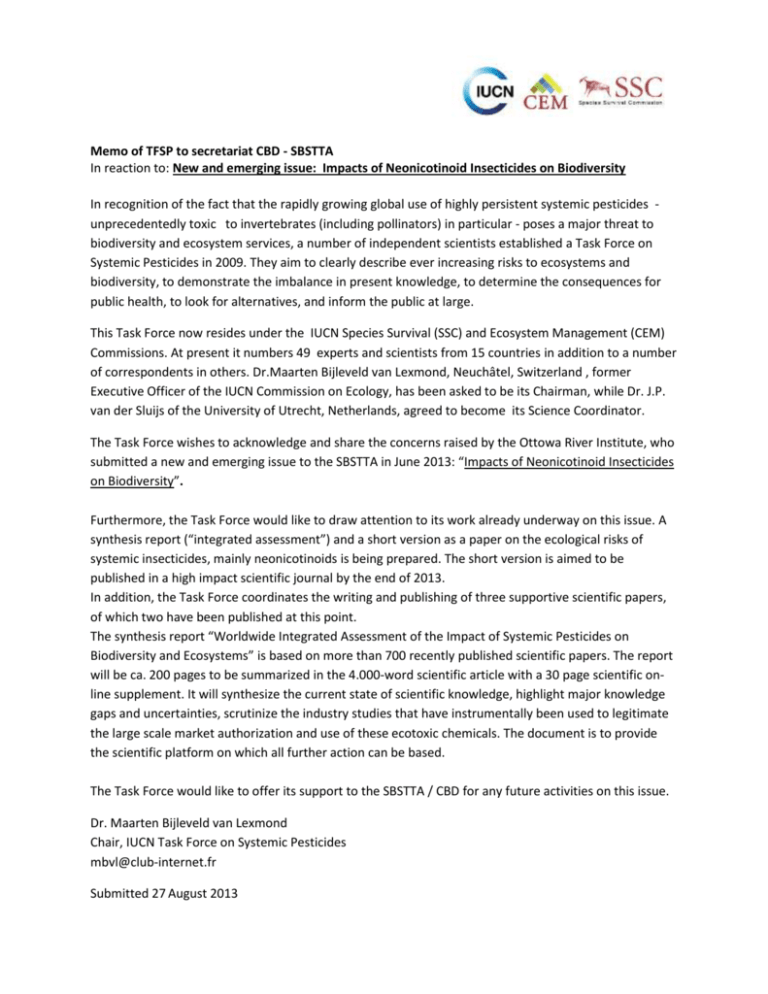
Memo of TFSP to secretariat CBD - SBSTTA In reaction to: New and emerging issue: Impacts of Neonicotinoid Insecticides on Biodiversity In recognition of the fact that the rapidly growing global use of highly persistent systemic pesticides unprecedentedly toxic to invertebrates (including pollinators) in particular - poses a major threat to biodiversity and ecosystem services, a number of independent scientists established a Task Force on Systemic Pesticides in 2009. They aim to clearly describe ever increasing risks to ecosystems and biodiversity, to demonstrate the imbalance in present knowledge, to determine the consequences for public health, to look for alternatives, and inform the public at large. This Task Force now resides under the IUCN Species Survival (SSC) and Ecosystem Management (CEM) Commissions. At present it numbers 49 experts and scientists from 15 countries in addition to a number of correspondents in others. Dr.Maarten Bijleveld van Lexmond, Neuchâtel, Switzerland , former Executive Officer of the IUCN Commission on Ecology, has been asked to be its Chairman, while Dr. J.P. van der Sluijs of the University of Utrecht, Netherlands, agreed to become its Science Coordinator. The Task Force wishes to acknowledge and share the concerns raised by the Ottowa River Institute, who submitted a new and emerging issue to the SBSTTA in June 2013: “Impacts of Neonicotinoid Insecticides on Biodiversity”. Furthermore, the Task Force would like to draw attention to its work already underway on this issue. A synthesis report (“integrated assessment”) and a short version as a paper on the ecological risks of systemic insecticides, mainly neonicotinoids is being prepared. The short version is aimed to be published in a high impact scientific journal by the end of 2013. In addition, the Task Force coordinates the writing and publishing of three supportive scientific papers, of which two have been published at this point. The synthesis report “Worldwide Integrated Assessment of the Impact of Systemic Pesticides on Biodiversity and Ecosystems” is based on more than 700 recently published scientific papers. The report will be ca. 200 pages to be summarized in the 4.000-word scientific article with a 30 page scientific online supplement. It will synthesize the current state of scientific knowledge, highlight major knowledge gaps and uncertainties, scrutinize the industry studies that have instrumentally been used to legitimate the large scale market authorization and use of these ecotoxic chemicals. The document is to provide the scientific platform on which all further action can be based. The Task Force would like to offer its support to the SBSTTA / CBD for any future activities on this issue. Dr. Maarten Bijleveld van Lexmond Chair, IUCN Task Force on Systemic Pesticides mbvl@club-internet.fr Submitted 27 August 2013
